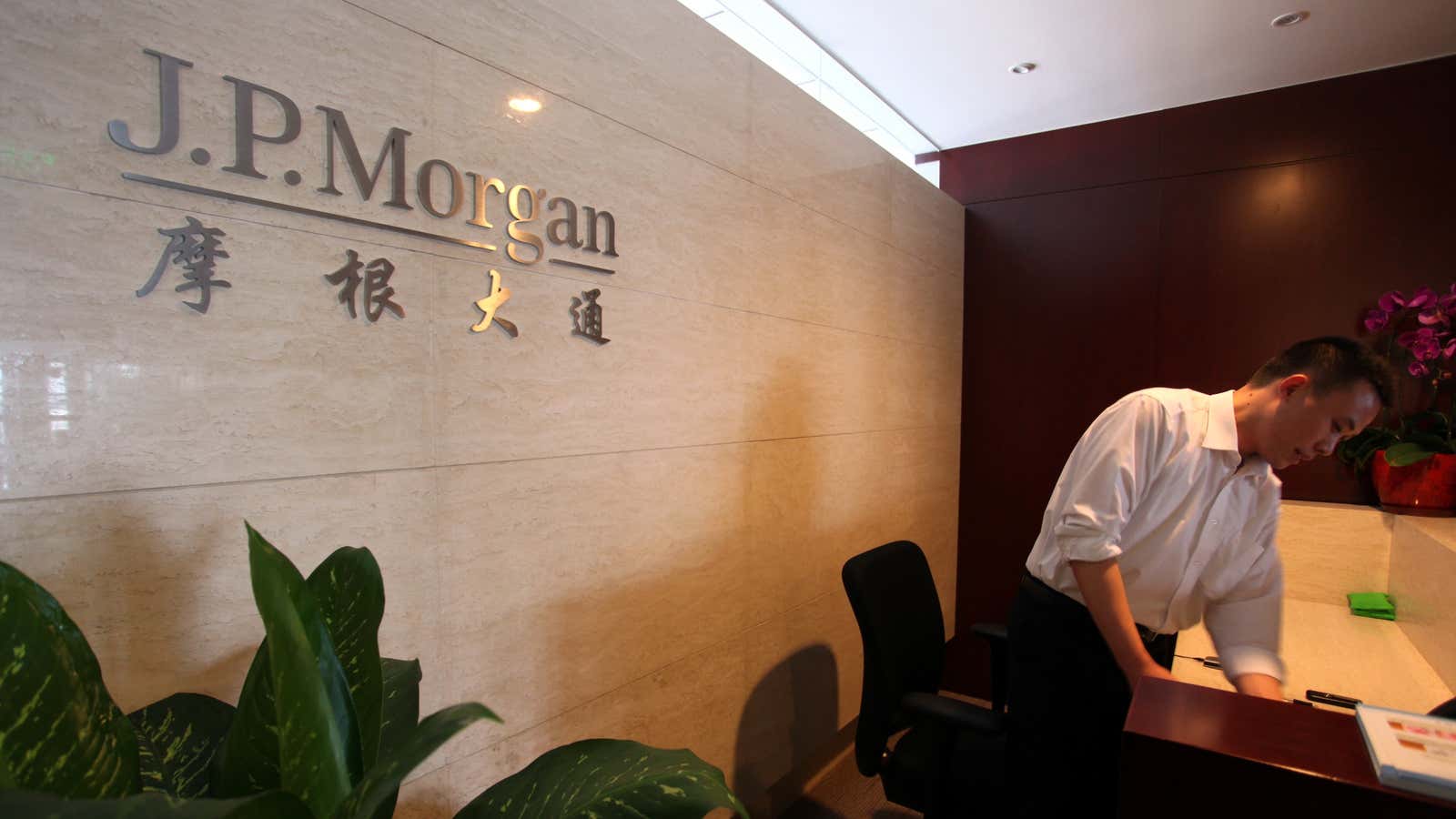As the white-shoe law firm of Paul, Weiss, Rifkind, Wharton & Garrison begins delving into JPMorgan Chase’s hiring practices in China, it might want to tread very carefully.
The firm was recently hired by the investment bank to do an internal investigation after the US Securities and Exchange Commission started a bribery investigation. The US regulator is probing JPMorgan’s employment of the offspring of powerful Chinese officials. But looking into corporate wrong-doing in China can be sensitive for private investigators, if not dangerous.
Take the case of British citizen Peter Humphrey and his wife, Yingzeng Yu, who is a naturalized American citizen. The two veteran fraud investigators were detained for weeks by Chinese investigators before being arrested August 19, on charges of “illegally trafficked a huge amount of personal information on Chinese citizens,” according to a report in the state-run Xinhua news Tuesday. Among other things, they possessed information on relatives and real estate, the report said.
Their firm, ChinaWhys, had been working with GlaxoSmithKline to investigate a bribery scandal within its China operations, among other clients, and the two are described as well-versed in China’s laws and well-connected, making their detention and the charges against them worrisome to many experts on doing business in China.
“The fundamental lack of clarity on the charges against Humphrey remains a problem” for companies looking into any allegations of impropriety in China, said Benjamin Shobert, managing director of Rubicon Strategy Group, a consulting firm. “As long as the corporate investigative community is unclear on what line Humphrey crossed, the standard they will be held to during their own internal investigations is unknown,” he said.
Officially, China’s personal information laws are being updated to protect consumers who put personal information on the internet from identity theft and other crimes and privacy violations. But they’ve also been used to shut down more than 150 private investigators who were detained in Hubei and Chongqing in January. The laws are broad enough that some suspect Humphrey and Yu are being detained to help the Chinese in their investigation into GlaxoSmithKline, which has been accused of paying nearly $500 million to doctors and government officials in China to illicitly win business. Others say the two may have stepped on the toes of a well-connected official.
Any investigation into hiring practices and violations of the US’s Foreign Corrupt Practices Act will surely involve some deep dives into internal e-mail and other communications ahead of the hiring of connected individuals. As the law firm of Gibson, Dunne & Crutcher explains, “The propriety of hiring a foreign official’s relative—even a qualified one—is and will continue to be a fact-intensive inquiry.”
The SEC investigation into JPMorgan, which will center around the bank hiring new employees—like the daughter of the Ministry of Railways and the son of the head of a state run bank to its deal-making team—are so sensitive in China that any mention of the SEC investigation has been blocked from social media. Posts about the investigation on Sina Weibo by Hu Shuli, the founder of well-respected magazine Caixin, and a subsequent discussion on the magazine’s website were blocked, as were other posts referring to the story.
For Paul, Weiss, Wharton & Garrison, there may be a message in that silence: Proceed with caution.
